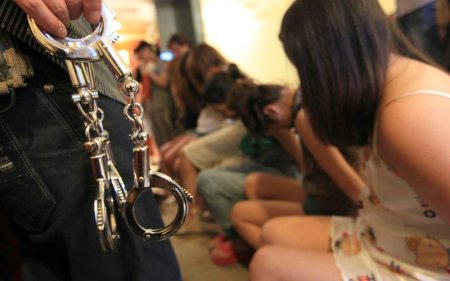Sex trafficking survivors sue Nevada over legalized prostitution, say it violates 13th Amendment

Survivors of sex trafficking have filed a lawsuit against Nevada, arguing that the state violated the 13th Amendment of the U.S. Constitution when it legalized prostitution.
According to a recent announcement, the case of Charleston v. State of Nevada will be argued before the U.S. Court of Appeals for the Ninth Circuit on Dec. 9.
The National Center on Sexual Exploitation Law Center will argue the case on behalf of three women who were trafficked to brothels in Las Vegas.
Christen Price, legal counsel for NCOSE, said in a statement Thursday that the 13th Amendment “prohibited the states from re-establishing new forms of servitude through abusive economic practices.”
“Yet this is what Nevada’s legal scheme is producing: vulnerable women and girls are commodified and held in sexual servitude,” stated Price.
“Nevada’s sex tourism industry, bolstered by the unquenchable demand, requires more and even younger girls each year. Girls are brought to Nevada across state lines to be prostituted and trafficked, in violation of federal law.”
Price argued that Nevada's legal prostitution and the illegal practice of sex trafficking “are inextricably linked … as elsewhere in the world where prostitution is legal.”
“This lawsuit seeks an order that will void any county ordinances licensing brothels; invalidate the state law permitting prostitution; and provide exit services and resources to women prostituted through Nevada’s legal brothels,” continued Price.
“We hope that our survivor plaintiffs receive some measure of justice, and that their case would ultimately pave the way for other girls and women to escape Nevada’s sexual slavery scheme.”
In March 2019, NCOSE filed the lawsuit in federal court on behalf of sex-trafficking victims Bekah Charleston, Angela Delgado-Williams and Leah Albright-Byrd.
“Brothel owners and operators in Nevada regularly and with impunity violate federal law,” the suit states. “On average, in jurisdictions with legal prostitution, there is a statistically significant larger reported incidence of illegal sex trafficking.”
In October 2019, District Court Judge Miranda Du ruled against the plaintiffs, arguing that the women's horrible experiences could not be properly linked to Nevada’s prostitution laws.
“Ultimately, the Court is not convinced that legal prostitution in Nevada's counties which Plaintiffs challenge here is anything more than the attenuated cause of Plaintiffs' alleged injuries,” wrote Du.
“… that Plaintiffs were unlawfully forced into prostitution and sex trafficked in Nevada and other states is not sufficiently traceable to Nevada laws permitting legal prostitution as opposed to other factors, namely the illicit behaviors of private bad actors.”





















